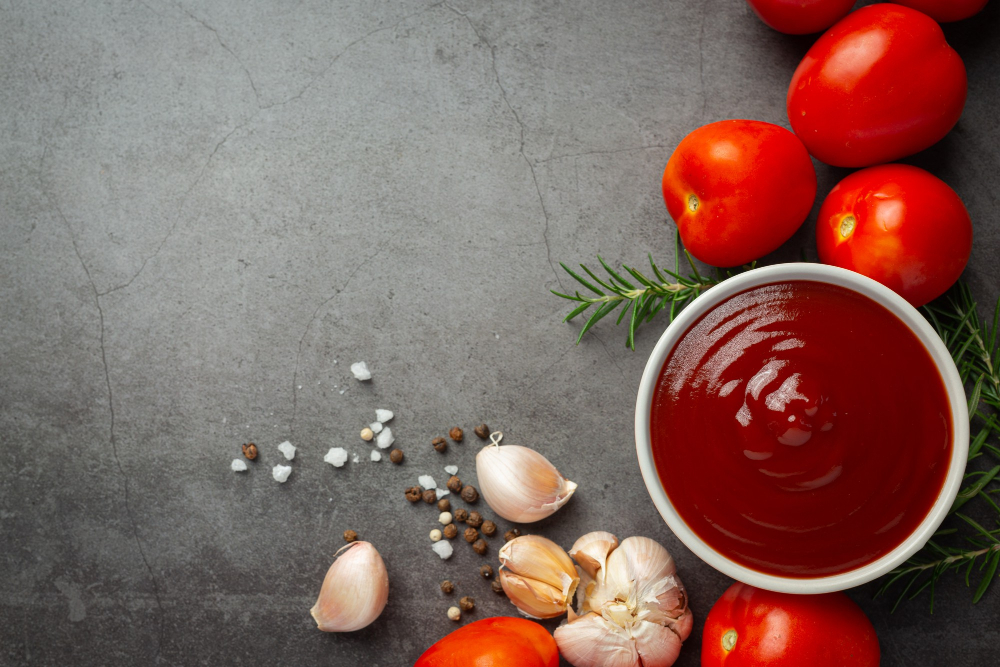What is the best oil to use in a marinade?
When it comes to marinating meat, choosing the right oil can make a big difference in terms of flavor and tenderness. The oil you use in a marinade not only helps to infuse the meat with flavor but also plays a crucial role in tenderizing the proteins. In this article, we will explore the various types of oils that can be used in marinades and discuss the factors to consider when making your choice.
The importance of using oil in marinades
Oil serves multiple purposes in a marinade. Firstly, it acts as a carrier for the flavors of other ingredients, such as herbs, spices, and acids. This helps to evenly distribute the flavors throughout the meat, resulting in a more flavorful dish. Additionally, oil helps to keep the meat moist during the marinating process, preventing it from drying out.
Considerations when choosing the best oil
The choice of oil depends on several factors, including the type of meat you are marinating and the flavor profile you wish to achieve. Here are some considerations to keep in mind:
Smoke point:
The smoke point of an oil refers to the temperature at which it starts to break down and produce smoke. When marinating meat, it’s important to choose an oil with a high smoke point to prevent it from burning during cooking. Examples of oils with high smoke points include canola oil, peanut oil, and avocado oil.
Flavor:
The flavor of the oil you choose will influence the overall taste of the dish. Lighter oils, such as grapeseed or vegetable oil, have a neutral flavor that allows other ingredients to shine. On the other hand, oils like olive oil or sesame oil have distinct flavors that can add a unique taste to the marinade.
Healthy options:
If you are conscious of your health, you may want to choose oils that are high in monounsaturated fats and low in saturated fats. Olive oil, for example, is known for its heart-healthy properties and can be a great choice for marinades.
Best oils for marinating different types of meat
While personal preference plays a role in choosing the best oil for a marinade, there are some general guidelines to consider based on the type of meat:
- Poultry: Lighter oils like canola or vegetable oil are often used for marinating chicken or turkey as they allow the flavors of herbs and spices to come through.
- Beef: Olive oil or avocado oil can add richness to a beef marinade. They work well with bold flavors like garlic, rosemary, or soy sauce.
- Pork: Consider using oils with a slightly sweeter profile, such as sesame oil or peanut oil, to enhance the natural sweetness of pork.
- Seafood: For seafood marinades, lighter oils like grapeseed or canola oil are often preferred to avoid overpowering the delicate flavors of fish or shrimp.
Pro Tip: Don’t shy away from experimenting with different oils and flavors in your marinades. It’s all about finding the combination that suits your taste buds!
In conclusion, the best oil to use in a marinade depends on factors such as smoke point, flavor, and the type of meat being marinated. Canola oil, peanut oil, and avocado oil have high smoke points and work well for most types of meat. Olive oil and sesame oil add distinct flavors, while lighter oils like grapeseed or vegetable oil provide a neutral base for other ingredients. Ultimately, the choice of oil is a personal preference that should be guided by the desired flavor profile and health considerations.
Should You Put Oil in Marinade?
Making a marinade is an essential part of preparing a delicious dish. It helps to infuse flavors into the meat, making it tender and tasty. One common question that arises when making a marinade is whether or not to include oil as one of the ingredients. Let’s explore the benefits and considerations of including oil in your marinade.
The Role of Oil in Marinades
Oils, such as olive oil or vegetable oil, serve multiple purposes in a marinade. Firstly, oil helps to distribute the flavors of the other ingredients evenly throughout the meat. It acts as a carrier for herbs, spices, and acids, ensuring that each bite is flavorful. Additionally, oil helps to prevent the meat from sticking to the grill or pan during cooking.
The Benefits of Using Oil
Using oil in a marinade can have several advantages. The oil helps to tenderize the meat by breaking down its fibers, resulting in a more succulent and juicy texture. Furthermore, oil creates a protective layer on the meat’s surface, helping to seal in moisture and prevent it from drying out during cooking.
However, it’s important to note that the type of meat you are marinating will influence the amount of oil needed. Leaner cuts of meat, like chicken breasts or fish fillets, may require more oil to keep them moist during cooking, while fattier cuts, like beef or pork, may not need as much.
Considerations and Alternatives
While oil can enhance the flavor and texture of your marinated dishes, there may be instances where you prefer to omit it. For example, if you are watching your calorie intake or following a specific dietary plan, you might choose to exclude oil from your marinade. In such cases, you can substitute it with alternative ingredients like yogurt, buttermilk, or acidic liquids like lemon juice or vinegar.
“When using oil in a marinade, opt for heart-healthy oils like olive oil, which adds wonderful flavors to your dish.
Experimenting with different combinations of ingredients can help you discover new flavors and techniques. Remember to keep the meat-to-oil ratio in mind and consider your personal dietary preferences when deciding whether or not to include oil in your marinade.
Which is Better: Brine or Marinade?
When it comes to grilling or roasting meat, the key to achieving juicy and flavorful results lies in the preparation. Two popular methods for enhancing the flavor of meat are brining and marinating. But which one is better? Let’s explore the differences and benefits of each.
Brining
Brining involves soaking meat in a solution of salt and water before cooking. This process helps to increase moisture retention, resulting in juicy and tender meat. The salt in the brine also helps to enhance the natural flavors of the meat. Brining is particularly effective for lean cuts of meat like chicken breasts or pork chops that tend to dry out easily.
“Brining adds both moisture and flavor to meat, making it a great choice for achieving succulent and flavorful results.”
Marinade
Marinating, on the other hand, involves soaking meat in a mixture of various ingredients such as oil, acid (like vinegar or citrus juice), herbs, and spices. This method is ideal for adding complex flavors to the meat and tenderizing tougher cuts. The acidic component in the marinade helps to break down the connective tissues in the meat, resulting in a more tender texture.
“Marinades are perfect for infusing meat with unique flavors and can help turn tougher cuts into delicious and tender meals.”
Choosing the Right Method
The choice between brining and marinating depends on the type of meat and flavor profile you desire. If you’re looking to lock in moisture and enhance the natural flavors, brining is an excellent option. On the other hand, if you want to experiment with different flavors and tenderize tougher cuts, marinating is the way to go.
Consider the following guidelines:
- Brining: Best for lean cuts of meat like chicken breasts or pork chops.
- Marinating: Ideal for tougher cuts of meat like beef brisket or flank steak.
Ultimately, both brining and marinating can elevate your cooking game and result in delicious meals. It’s worth experimenting with both methods to discover which works best for your taste preferences and desired outcome.
| Aspect | Brine | Marinade |
|---|---|---|
| Primary Purpose | Moisture retention and flavor enhancement | Flavor infusion and tenderizing |
| Main Ingredients | Salt and water | Oil, acid, herbs, and spices |
| Best for | Lean cuts of meat | Tougher cuts of meat |
In conclusion, both brining and marinating have their merits, and the choice depends on the type of meat and desired outcome. Whichever method you choose, proper timing and technique are crucial. So, fire up the grill or preheat the oven and enjoy the flavorful results of your culinary expertise!
Is it better to marinate in the fridge or room temperature?
Marinating is a great way to infuse flavor into your meats and vegetables before cooking them. However, there is an ongoing debate about whether it is better to marinate in the fridge or at room temperature. Let’s explore the pros and cons of each method:
Marinating in the fridge
Marinating in the fridge is a popular choice as it helps to keep the food safe from bacterial growth. When marinating in the fridge, the low temperature inhibits the growth of bacteria that can cause foodborne illnesses. It also allows for a longer marinating time, which allows the flavors to penetrate the food more thoroughly.
However, marinating in the fridge requires planning ahead, as the process can take several hours or even overnight. This method may not be suitable for impromptu cooking or when you are short on time.
Marinating at room temperature
Marinating at room temperature offers the convenience of a quicker marinating process. The warmer temperature helps to open up the pores of the food, allowing the marinade to penetrate more quickly. This method is ideal for those who prefer spontaneous cooking or when time is limited.
However, marinating at room temperature increases the risk of bacterial growth, especially if the marinating time exceeds 30 minutes. It is crucial to handle the food safely and cook it thoroughly to minimize any potential health risks.
“The ideal marinating process depends on personal preference, time constraints, and food safety considerations.”
To summarize, both methods have their advantages and disadvantages. The ideal marinating process depends on personal preference, time constraints, and food safety considerations. If you have enough time, marinating in the fridge is often recommended for its safety and thorough flavor infusion. On the other hand, marinating at room temperature can be a convenient option when you need to marinate quickly. Remember to follow safe food handling practices, regardless of the marinating method you choose.
Is vegetable oil better than olive oil for marinade?
When it comes to marinating your dishes, the choice of oil can have a significant impact on the flavor and overall outcome. Vegetable oil and olive oil are two commonly used options, but is one better than the other? Let’s explore the differences between these two oils to help you make an informed decision for your next marinade.
Difference between Vegetable Oil and Olive Oil
Vegetable oil is a generic term that encompasses various oils derived from plants, such as soybeans, corn, or sunflower seeds. It has a neutral flavor and a high smoke point, making it ideal for cooking methods like frying.
Olive oil, on the other hand, is extracted from olives and comes in different varieties, including extra virgin, virgin, and refined. It offers distinct flavors and aromas depending on the type and quality, making it a popular choice for dressings and marinades.
Flavor and Health Benefits
When it comes to flavor, olive oil tends to provide a more pronounced taste compared to vegetable oil. The fruity and sometimes peppery notes of olive oil can enhance the flavor profile of your marinade, especially when paired with certain ingredients.
In terms of health benefits, olive oil is often regarded as a healthier option due to its high monounsaturated fat content, which can help lower bad cholesterol levels. Vegetable oil, on the other hand, is a blend of oils and may contain higher amounts of saturated fats.
The Smoke Point Factor
When considering the ideal oil for marinades, the smoke point is an important factor to keep in mind. The smoke point is the temperature at which an oil starts to smoke and break down, resulting in a burnt flavor and potential health risks.
Vegetable oil generally has a higher smoke point compared to olive oil, making it more suitable for high-heat cooking methods like grilling or frying. However, if you are marinating ingredients that require lower cooking temperatures or are planning to use the marinade raw, olive oil can still be a great choice.
“If you’re looking for a marinade with a milder flavor, vegetable oil can be a suitable option. However, if you want to add depth and complexity to your dish, olive oil is worth considering.”
Conclusion
Choosing between vegetable oil and olive oil for your marinades ultimately depends on your personal preference and the intended use of the marinade. If you prioritize flavor and potential health benefits, olive oil may be the better option. On the other hand, if you need an oil with a higher smoke point or desire a milder taste, vegetable oil can fulfill those requirements.
In the end, experimenting with different oils and combinations can help you discover the perfect marinade for your dishes. Remember to consider the smoke point, flavor profile, and health benefits when making your decision.



